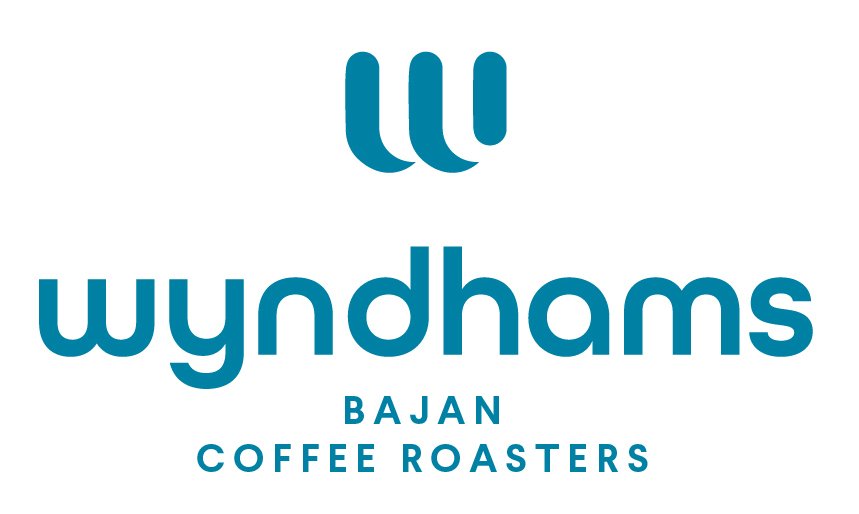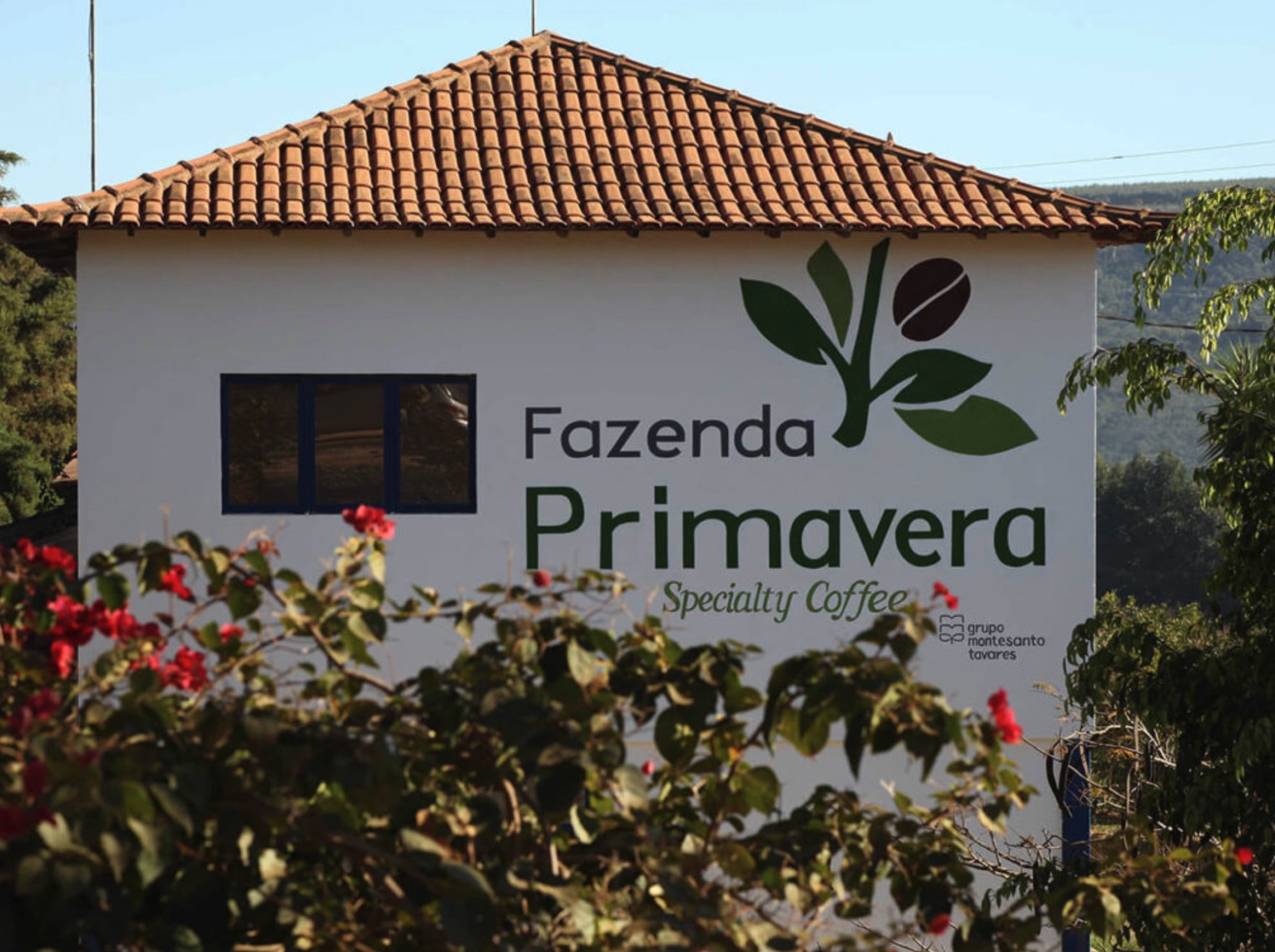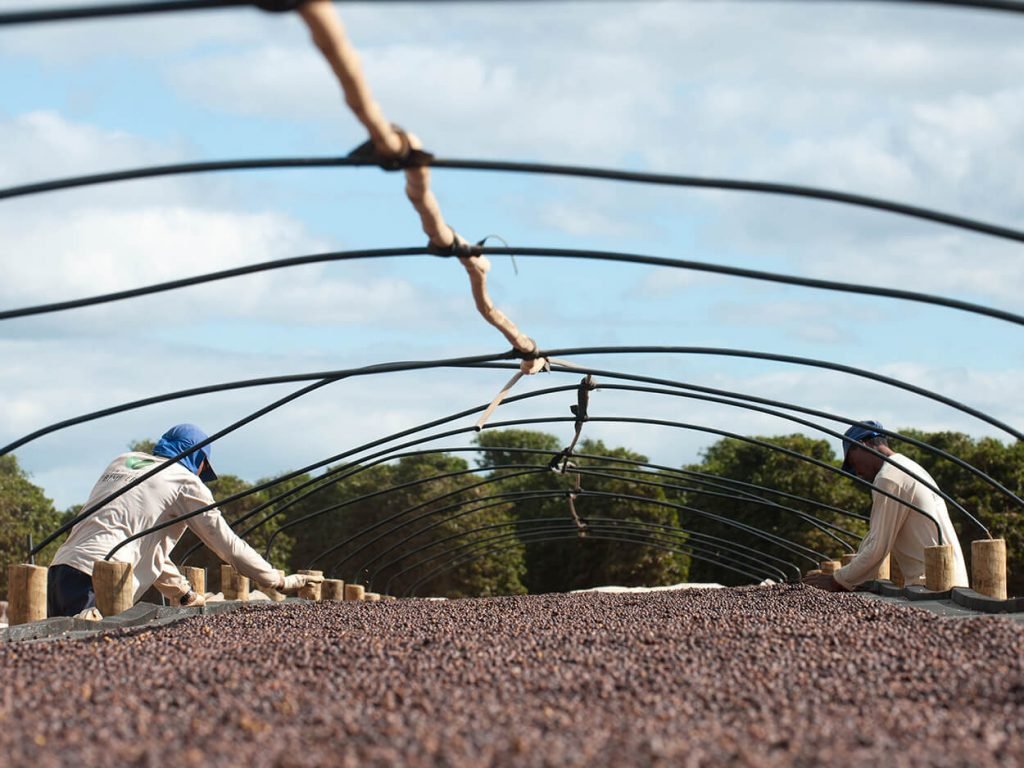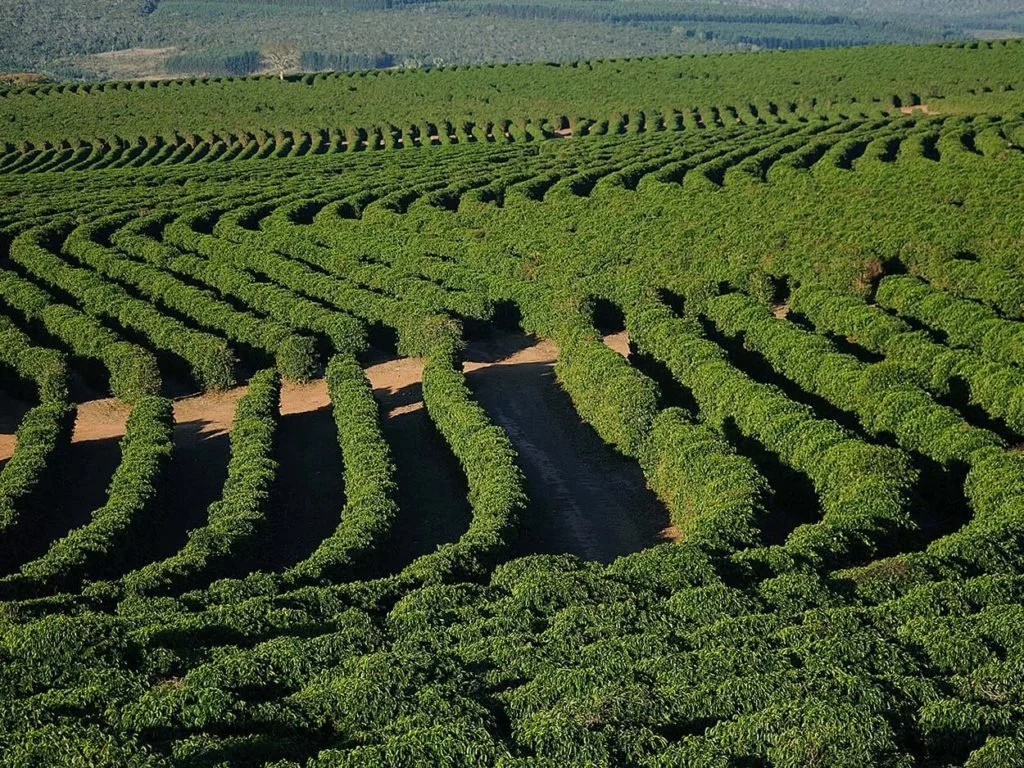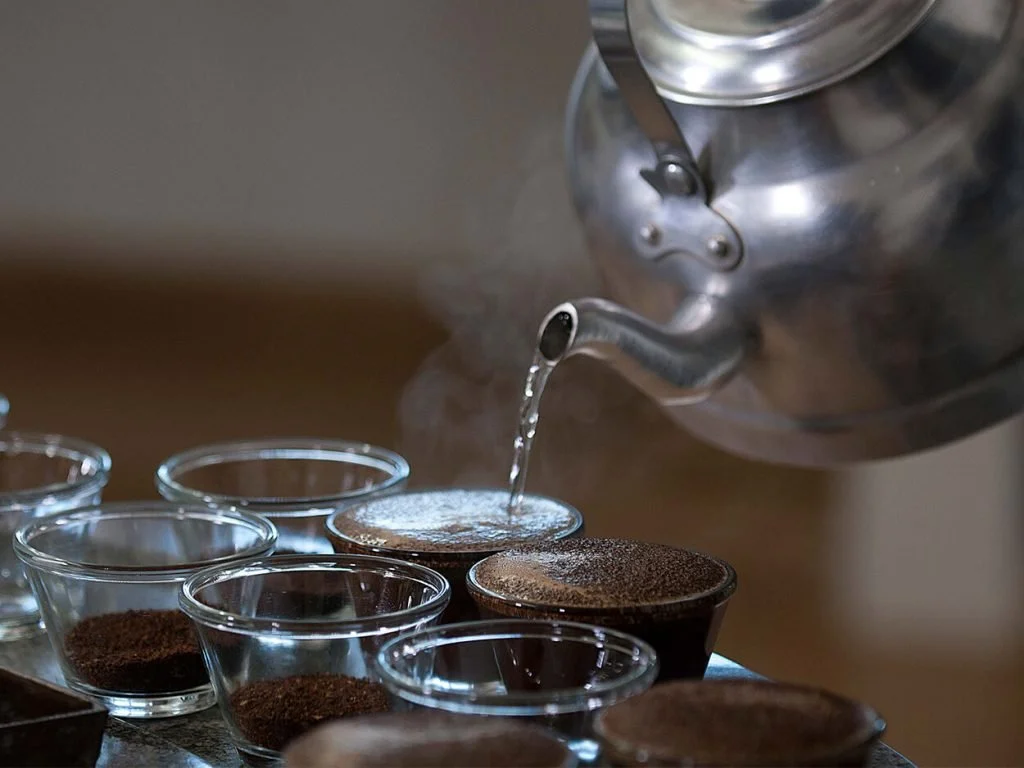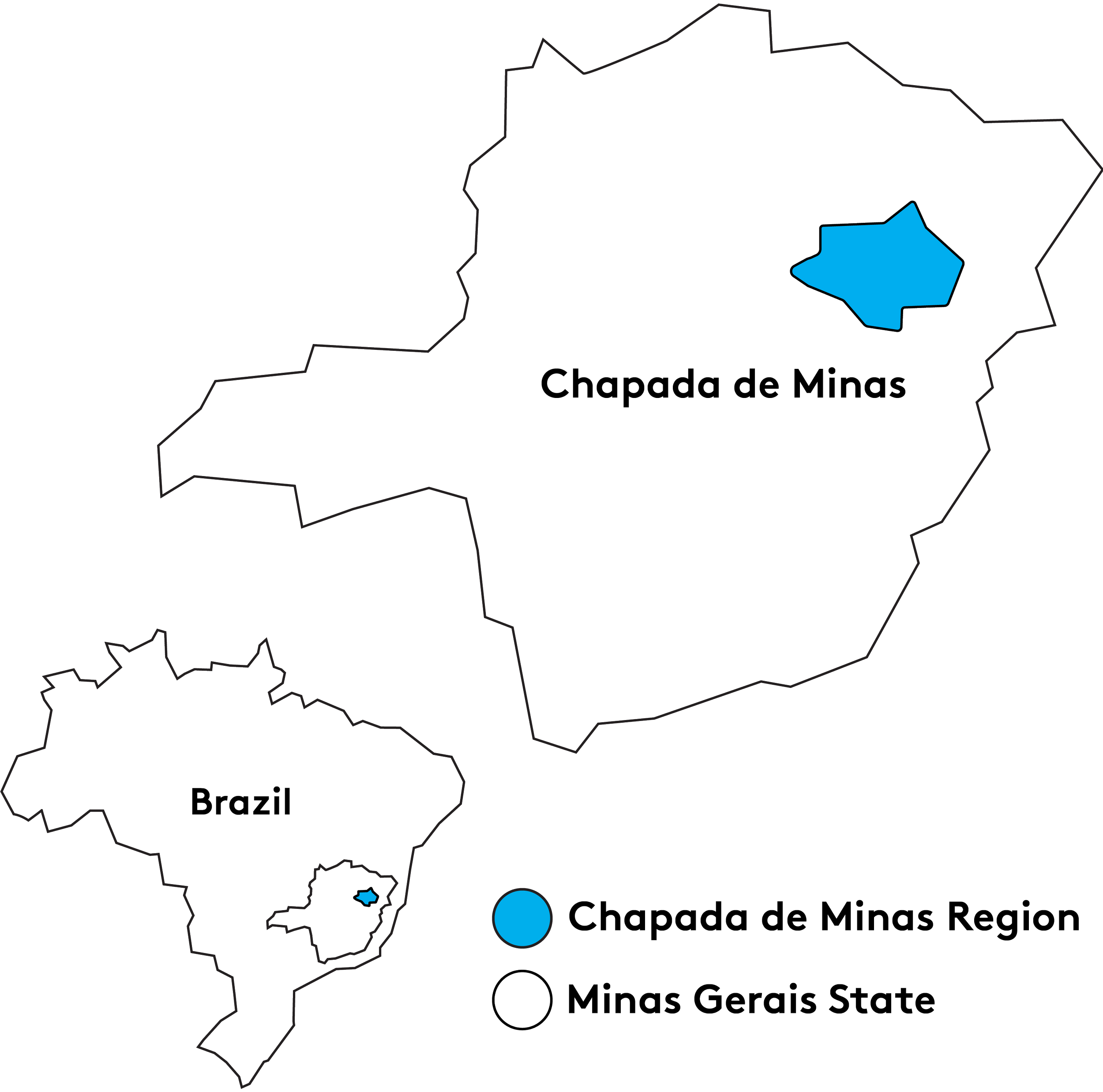BRAZIL CHAPADA DE MINAS NATURAL DECAF
BRAZIL CHAPADA DE MINAS NATURAL DECAF
HONEY, CITRUS, CACAO
ORIGIN INFORMATION
Grower
Ronaldo Morais Pena Filho
Variety
Yellow Catuai
Region
Angelandia, Minas Gerais, Brazil
Harvest
July - September
Altitude
1000 masl
Process
Natural process, Swiss Water Decaf
Certifications
Decaf
A NOTE ON OUR GROUND COFFEES: We grind our Coffees for Espresso, French Press, Moka Pot, Brewers and Pour-Overs based on industry norms for brew methods. All coffee brewing equipment may vary and it is not possible to guarantee it will be the perfect grind for your equipment. We do not exchange pre-ground coffees and recommend your purchasing a grinder for home use, which you can refine and dial in your perfect grind.
Fazenda Primavera is located in the municipality of Angelândia, Minas Gerais. The region sits at the transition between biomes, with land and vegetation characteristic of both the Atlantic forest and the Cerrado. The farm’s elevation, 950–1050 meters, promotes the cultivation of specialty coffee and the climate provides favorable conditions with average temperatures between 20–24 °C annually and precipitation of 1,000–1,300 mm.
Fazenda Primavera has state-of-the-art installations including a 24,000 m² drying patio, 14 electric dryers, and equipment for processing Natural, Pulped Natural, Honey, and fully Washed coffees. The farm cultivates predominantly Red and Yellow Catuai though also includes several other varieties, including Topazio and Gesha.
Primavera has seen a transformation throughout its long history of traditional coffee production dating back to the 1970s. The 1,240 hectare farm is now planted with 670 hectares of coffee, producing 12,000 bags annually. Environmental sustainability has always been integral to the farm’s operations, incorporating production techniques to minimize environmental damage. A power plant on the farm recycles water used in depulping to produce energy for the farm, and coffee pulp is composted for use as natural fertilizer.
Ronaldo Morais Pena Filho, continues to lead Primavera. “My family has been present in the coffee world since 1998, where I have worked with them since the first plantations in the North of Minas. In 2015, I joined the group at the invitation of Ricardo Tavares as General Manager and then took over the entire Operations Director of GMT Farms.”
Primavera’s agility in responding to new agricultural research and technology and to new trends in consumer preference is one of its main assets. For example, microlots are dried on raised beds, coffee is intercropped with shade trees on specially selected plots of the property, Honey processing eliminates the use of water, and coffee is evaluated constantly to find the best cup profiles. Primavera continues to keep an eye to the future, striving to lead the way for Brazilian specialty coffee.
This lot from Fazenda Primavera has been decaffeinated by Swiss Water. Swiss Water decaffeination begins with removing the silver skin from the bean. Next, coffee is transferred to tanks where it is soaked in clean water. In the third step, low-caffeine green coffee extract (water saturated with soluble green coffee compounds) flows into the coffee tanks. The green coffee extract has caffeine levels just below that of the green coffee, optimizing the driving force of the caffeine from the coffee into the green coffee extract. This process is repeated several times as the percentage of caffeine in the green coffee decreases. Finally, coffee is dried using an evaporative process where the moisture is converted to vapor and removed through an air exhaust stream. The green coffee extract, now rich in caffeine, moves to a special carbon filtration system to remove the caffeine to use the green coffee extract for the next round of decaffeination.
Chapada de Minas
The Chapada de Minas is a small and beautiful region with stunning topography shaped by plateaus and river canyons. The flatter plateau areas promoted the mechanization of the region’s coffee plantations. Coffee cultivation began in the 1870’s, which brought significant economic benefit to the region by increasing employment opportunities. Among all coffee regions, this area is the most important for small producers and is essential to the local economy.
Most of the coffees from Chapada de Minas are Natural processed, but Washed coffee processing is growing and has become a very interesting alternative for small and large producers.
